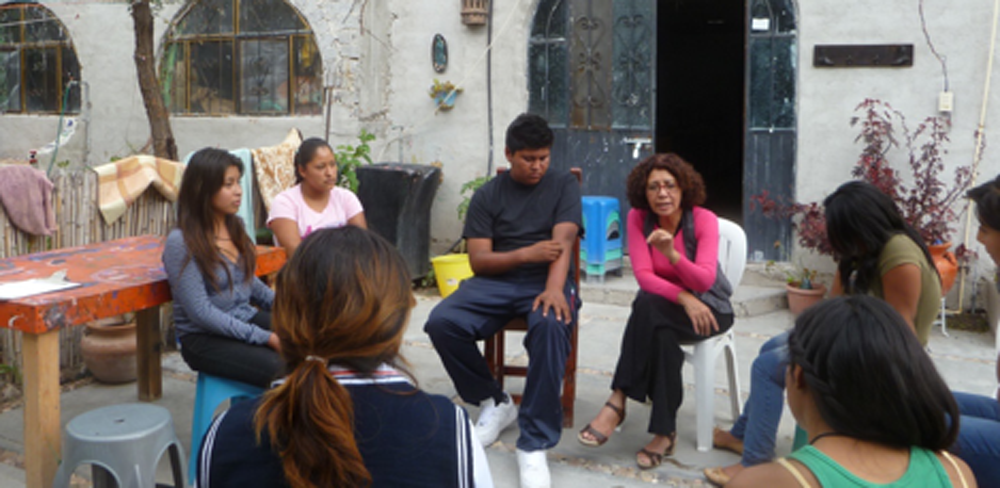
Cooperativism Workshops –The Center for Global Justice provides workshops on how to establish a cooperative -- how to work together harmoniously, how to thrive within democratic decision-making, and how to legally establish a group as a cooperative under Mexican law. Each workshop is specifically tailored to the group involved. The workshop typically involves weekly meetings of about two or three hours each over a period of three months. The workshops are designed to support groups that are interested in forming or are in the process of forming a cooperative, but brief introductory workshops are also available for the general public and student groups.
Community Dialogues – This is a program initially designed for university students in the San Miguel area, but that can be employed with other groups. The participants meet weekly for an hour to discuss their economic and social situation, to share experiences, reflect and explore alternatives such as Buen Vivir and a Solidarity Economy. They interrogate such issues as: sustainability; what happens in their communities; environmental values; how to create a life project; problems of migration; etc. The dialogue process is designed to cultivate collective thinking, listening skills and self-directed learning--skills which will enhance their capacity to effectivly address community problems.
Visits to Community Projects & Cultural Sites – These educational tours introduce participants to some of the numerous community projects in our region that are directed toward the rescue of traditional cultures, alternative technologies, sustainable and regenerative practices and participatory organizational forms. Local visits include to: CEDESA, El Charco, Rancho Via Orgánica, Cañada de la Virgen, Los Rancheritas, GAIA, Caminos de Agua, among others.
Student Internships – The Center for Global Justice works with universities in the U.S. and other countries to design opportunities for visiting students to explore the aspects of a solidarity economy in the Mexican context. The programs are developed in coordination with the partner university to meet the needs of different kinds of groups. For example, one project could be a group of 10 to 20 students that visit for a relatively short period, while another might be one or two students for an extended period. In the latter case, the students would be assigned a hands-on work or research project in addition to their participation workshops and programmed visits to projects toward a sustainable and solidarity economy in the region.
Participation in The Education Collaborative – which promotes collaboration among the many educational projects in San Miguel de Allende in a joint effort to build a deeper sense of community. The Collaborative’s projects include: a newletter on solidarity economy and environmental issues and developments; a series of bilingual programs—“Re-imagining San Miguel de Allende as a Sustainable Community”-- based on the Environmental Agenda developed by a multidisciplinary team based in the UNAM; and the development of a Solidarity Economy Laboratory that could “provide a space for dialog, exchange of experiences, reflection, experimentation, socio-political innovation and co-creation that could advance the transition to sustainable communities.”
